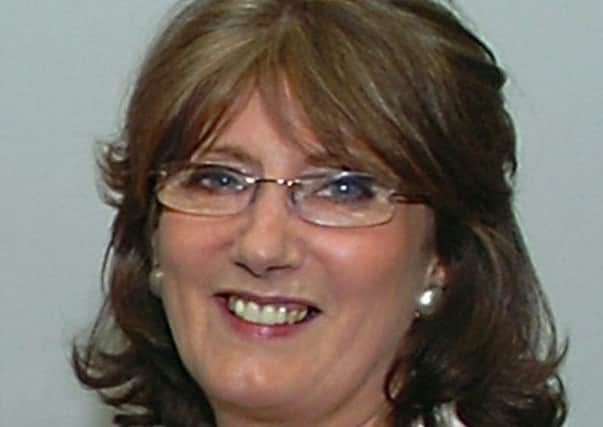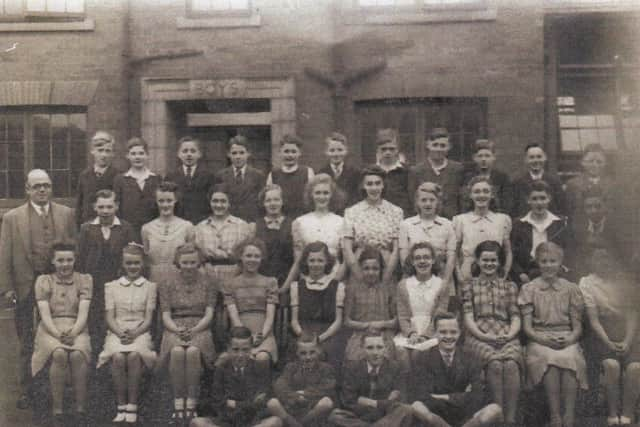The Nostalgia column with Margaret Watson


Surprisingly, this is at a time when young people appear to have more freedom, more money and more leisure time than at any other time previously.
I’m no psychiatrist and therefore cannot explain this inner loneliness which many youngsters seem to suffer from today but I know that wasn’t the case when we were young.
Advertisement
Hide AdAdvertisement
Hide AdI remember there weren’t enough hours in the day for youngsters like me and it wasn’t just about going to the pictures, pubs and dancing.


There were lots of other recreational activities, including youth clubs at most churches and lots of sports clubs for the boys.
In between, we also had to help with household chores, unheard of today, and going shopping for our mums.
This week Harold Laycock, who wrote last week about his school days, takes up where he left off last week on leaving Dewsbury Technical School.
Advertisement
Hide AdAdvertisement
Hide AdHere are Harold’s delightful recollections of that time in the days when he was still living in Ravensthorpe:
“Mid-week nights, when there was no night school, we often spent at the cinema in Dewsbury, or out on a date.
“There were two specific meeting places, one by the photographs on the wall in the old bus station, the other at Hilton’s Corner, a shoe shop which was situated on the corner of the Market Square, opposite Dewsbury Town Hall.
“Saturday afternoons, without sport, usually meant a visit to Dewsbury town centre, followed by coffee at Bickers Department Store cafe.
Advertisement
Hide AdAdvertisement
Hide Ad“On Sunday afternoons, Caddies Ice Cream Parlour was a meeting place for the local youths, where they enjoyed their favourite drink, a glass of Lemonade with a scoop of ice cream. When Caddies closed many people moved across town to the Tudor Cinema Cafe.
“Sunday evenings was ‘Prom Night’, the word Prom being short for Promenade, when young people often paraded around Dewsbury Town centre in single sex groups, with the girls and boys stopping along the way for a chat.
“In summer the ‘Prom’ transferred to Crow Nest Park, and there was Sunday evening entertainment provided by the Young Labour Movement at the Ben Riley Hall in Dewsbury.
“Members often presented short sketches followed by dancing to recorded music, and whilst it wasn’t compulsory to be a member of the Labour Party, non-members were welcomed.
Advertisement
Hide AdAdvertisement
Hide Ad“Betty Boothroyd, former Speaker of the House of Commons was a member. There was also Sunday evening dancing, table tennis etc, at Eastborough School.
“1953 was a very memorable year with The Coronation of Queen Elizabeth, Edmund Hillary and Sherpa Tenzing Norgay climbing Mount Everest, England winning the Ashes series against Australia and Gordon Richards winning his first Derby on Pinza.
“Having reached my 21st birthday in July, my apprenticeship ended and I was now a qualified joiner.
“Later, in August of that year, having been deferred for three years in order to complete my apprenticeship, I was called up into the Royal Air Force to serve my National Service. They were two very happy years.
Advertisement
Hide AdAdvertisement
Hide Ad“Following my initial training, I moved on to No 1 school of Cookery at RAF Halton.
The RAF camp was in the foothills of the beautiful Chiltern Hills, Buckinghamshire.
“Higher up in the hills there were wonderful views of four counties – Buckinghamshire, Oxfordshire, Hertfordshire and Bedfordshire.
“The camp was close to the towns of Aylesbury, High Wycombe and the Prime Minister’s country residence, Chequers.
Advertisement
Hide AdAdvertisement
Hide Ad“I played football with the RAF Halton station football team and Princess Risborough Town in the Hellenic League.
“The Princess Risborough team had a dismal record, losing every match, playing 30 and losing 30 and making the national news headlines along the way.
“On completion of my training at RAF Halton I was posted to RAF Patrington in East Yorkshire. This was close to the seaside resort of Withernsea and about seventeen miles from the city of Hull.
“Although there was strong competition for places in the station football team, with some very talented players, I managed to slot in at left full back.
Advertisement
Hide AdAdvertisement
Hide Ad“The team, which played in the Hull and District Thursday Amateur Association Football League, were unbeaten all season winning the league and Knockout cup double.
“Whenever I got a weekend pass I travelled home and went to my usual haunts such as Dewsbury Town Hall.
In August 1955 I was demobbed and reluctantly returned to civilian life and my old job as a joiner with Dewsbury Cooperative Society.
“Resettlement into civilian life and a reluctance to return to my old trade made life more difficult.
Advertisement
Hide AdAdvertisement
Hide Ad“Shortly after re-joining the Coop, I moved to Samuel Armitage Builders in Dewsbury in order to gain more experience.
“I also returned to my old stamping ground at the Little Saddle pub and dancing at Dewsbury Town Hall.
“Although my friends were still single, many other faces had changed with people now married and off the leisure circuit.
“Shortly after I returned to civilian life, I met my future wife and we were married in 1958 and that was the end of my life in Ravensthorpe.
Harold’s memoirs will continue in forthcoming articles.